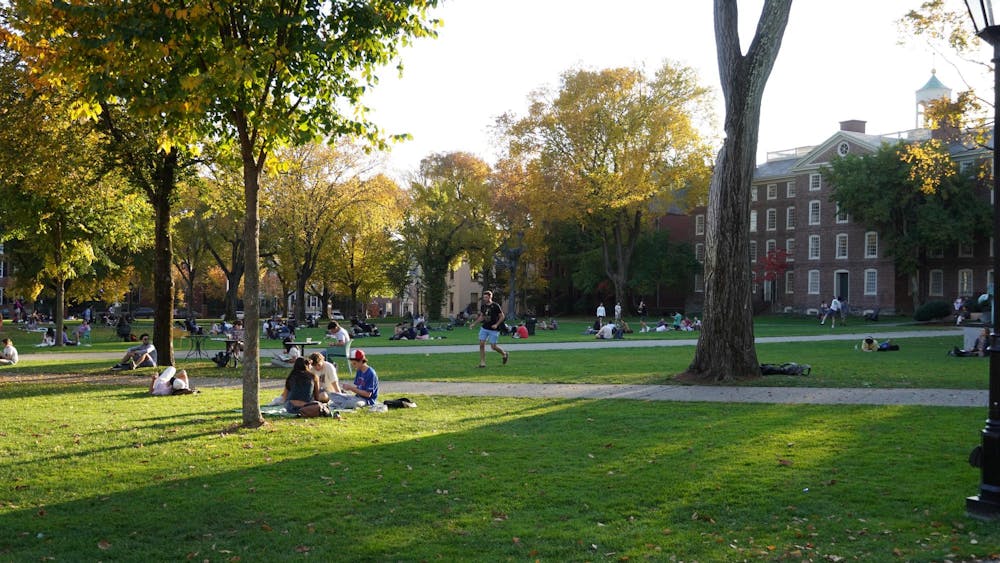As Brown is set to reconsider its policy on giving applicants with familial connections to Brown preference in the admissions process, The Herald polled over 1,100 undergraduates to understand their opinions on the controversial practice.
According to the poll, 9% of current students have at least one parent who attended Brown’s undergraduate program, the University’s criterion for a legacy admission.
The students who receive this preference are much more likely to support its continuation compared to other students. Most students oppose keeping the policy in place.
Last spring, the University announced that it would reinstate standardized test requirements starting this application cycle and keep the binding early decision process intact after a lengthy review by the Ad Hoc Committee on Admissions Policies. But the University did not announce a final decision on using family preferences in the admissions practice. Instead, it vowed to seek community input to inform any future changes to the policy.
The University has yet to publicize when or how it plans to collect community input among current students. In last spring’s alumni magazine, a letter from President Christina Paxson P’19 P’MD’20 invited alums to share their “thoughts about family preference in admissions.” Paxson also noted that “members of multi-generational Brown families are among some of our most loyal alumni who support Brown in a myriad of ways and carry forth Brown traditions and culture.”
Six Brown alumni groups declined or did not respond to a request for comment on their views on legacy admissions.
The Ad Hoc Committee found that “students whose parents attended Brown tend to be exceptionally well-qualified, with academic records that are stronger than that of average matriculants” and have higher enrollment rates.
In an interview with The Herald, Paxson said that “our legacy students are now much more diverse, and they will become increasingly so as time goes on.” She also said that if the University “were concerned primarily with socioeconomic diversity, it would make sense to eliminate this practice.”
The Ad Hoc Committee reported similar findings, claiming that the removal of legacy preferences “could lead to somewhat more diversity in the group of admitted students,” which would potentially increase the number of students from underrepresented backgrounds.
In a statement shared with The Herald, Students for Educational Equity, an undergraduate student advocacy organization, reiterated their previous calls “for the abolition of legacy admissions due to its inequitable preference for wealthy white students and restriction of access to higher education institutions for students who do not fit their historic mold.”
“An end to legacy admissions, although not a panacea, could be all the more important after the removal of affirmative action in providing fair admissions standards for applicants with varying educational backgrounds and resources,” SEE wrote.
SEE is attempting to pass a bill in the Rhode Island State House to ban legacy preferences in admission for any university in the state.
Following the fall of race-based affirmative action, Brown saw a 40% decrease in the share of Black students in this year’s first-year class, along with a 29% drop in Hispanic students.
“Legacy preferences constitute affirmative action for the rich,” Richard Kahlenberg, an expert witness in the case that brought about restrictions in race-conscious admissions, wrote in a previous email to The Herald. “This practice was never defensible, but even less so now that Brown cannot use race in admissions.”
“Lots of other superb universities — Oxford, Cambridge, Johns Hopkins, Berkeley — don’t use legacy preferences. Brown should join them,” Kahlenberg said.
Alex Shieh ’27, a legacy student himself, supports ending legacy admissions.
“The American dream is powered by education’s near-magical ability to inspire the next generation of leaders and change-makers,” Shieh wrote in an email to The Herald.
But unfair admissions practices like legacy preference and affirmative action threaten the credibility of the American dream by rigging the game against those who work hard yet lack the preferred familial or racial pedigree.”

Talia LeVine is a section editor covering arts and culture. They study Political Science and Visual Art with a focus on photography. In their free time, they can be found drinking copious amounts of coffee.





